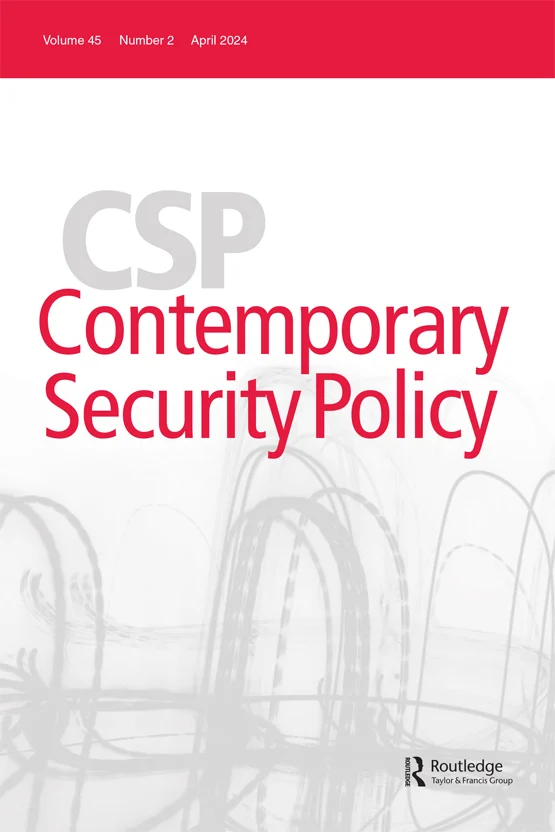Making nuclear possession possible: The NPT disarmament principle and the production of less violent and more responsible nuclear states
IF 5
1区 社会学
Q1 INTERNATIONAL RELATIONS
引用次数: 0
Abstract
ABSTRACT This article interrogates the disarmament principle under Article VI of the NPT, drawing attention to how the disarmament discourse shapes and reproduces the nuclear status quo. Building on the work of Kimberly Hutchings and Maja Zehfuss, I argue that the disarmament discourse renders nuclear possession more acceptable. It enables nuclear states to present themselves as less violent and more responsible actors glossing over the nature of possessing nuclear weapons. Using a feminist poststructuralist lens and examining empirical illustrations, the article explains how declarations of strict observance of the disarmament principle reaffirm traits and values that underpin social expectations of what is considered ethical and appropriate in nuclear politics. Moreover, it shows how the rhetorical commitment to a world free of nuclear weapons reinstitutes and preserves existing understandings around nuclear responsibility that define the bounds of acceptable nuclear possession, perpetuating the dominant status quo.使拥有核武器成为可能:《不扩散核武器条约》的裁军原则和产生较少暴力和更负责任的核国家
摘要本文探讨了《不扩散条约》第六条规定的裁军原则,提请注意裁军话语如何塑造和再现核现状。在Kimberly Hutchings和Maja Zehfuss工作的基础上,我认为裁军谈判使拥有核武器更容易被接受。它使核国家能够表现出较少暴力、更负责任的行为者,掩盖拥有核武器的性质。文章运用女权主义后结构主义的视角,并考察了经验例证,解释了严格遵守裁军原则的宣言如何重申了社会对核政治中被认为合乎道德和适当的东西的期望的特征和价值观。此外,它还表明,对一个没有核武器的世界的口头承诺是如何恢复和维护围绕核责任的现有谅解的,这些谅解界定了可接受的核拥有的界限,使主导现状永久化。
本文章由计算机程序翻译,如有差异,请以英文原文为准。
求助全文
约1分钟内获得全文
求助全文
来源期刊

Contemporary Security Policy
Multiple-
CiteScore
14.60
自引率
6.80%
发文量
22
期刊介绍:
One of the oldest peer-reviewed journals in international conflict and security, Contemporary Security Policy promotes theoretically-based research on policy problems of armed conflict, intervention and conflict resolution. Since it first appeared in 1980, CSP has established its unique place as a meeting ground for research at the nexus of theory and policy.
Spanning the gap between academic and policy approaches, CSP offers policy analysts a place to pursue fundamental issues, and academic writers a venue for addressing policy. Major fields of concern include:
War and armed conflict
Peacekeeping
Conflict resolution
Arms control and disarmament
Defense policy
Strategic culture
International institutions.
CSP is committed to a broad range of intellectual perspectives. Articles promote new analytical approaches, iconoclastic interpretations and previously overlooked perspectives. Its pages encourage novel contributions and outlooks, not particular methodologies or policy goals. Its geographical scope is worldwide and includes security challenges in Europe, Africa, the Middle-East and Asia. Authors are encouraged to examine established priorities in innovative ways and to apply traditional methods to new problems.
 求助内容:
求助内容: 应助结果提醒方式:
应助结果提醒方式:


